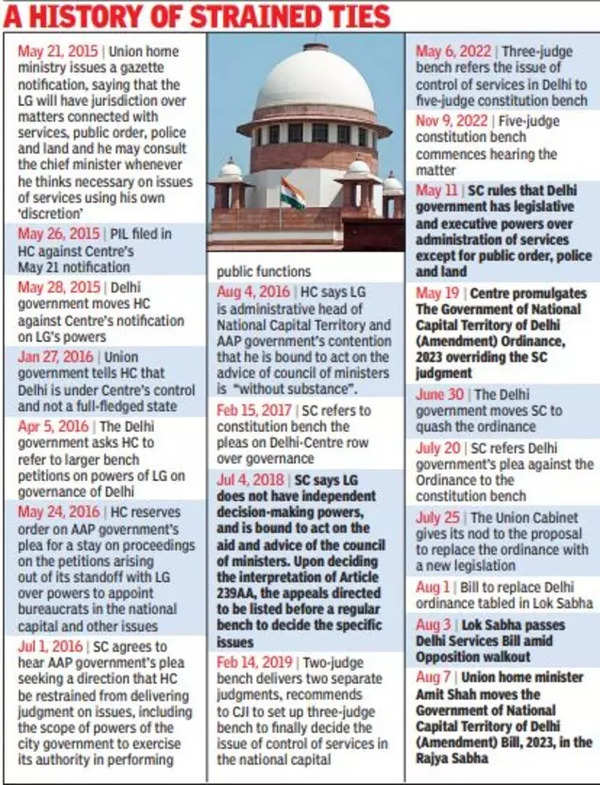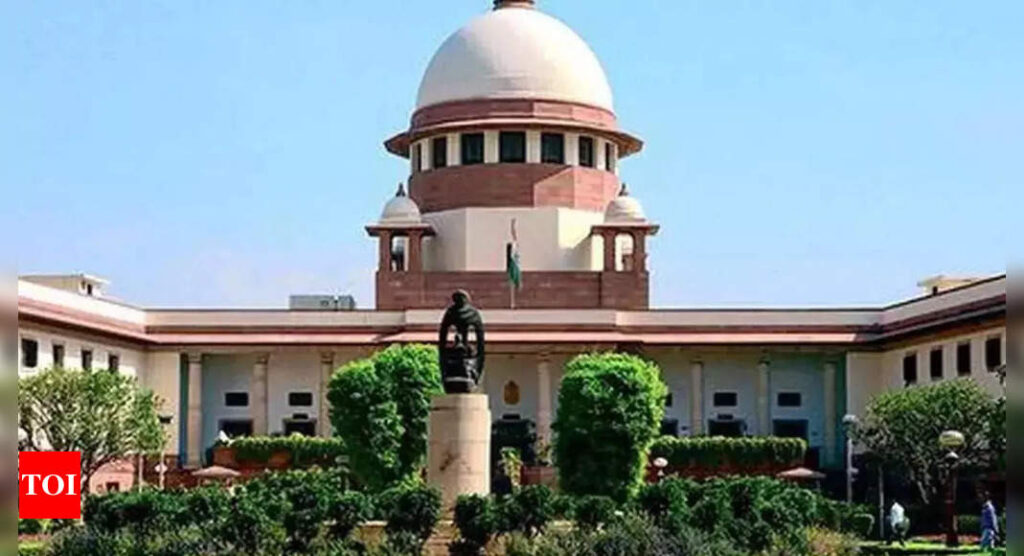[ad_1]

The Government of National Capital Territory of Delhi (Amendment) Bill, 2023, was passed in the Rajya Sabha on Monday regardless of the opposition collectively calling it “unconstitutional”. It will now go to the President for her assent before it becomes an Act.
The matter of control of services, however, still hangs fire with the Supreme Court having already formed a five-judge constitution bench to address the question of whether Parliament can “abrogate the constitutional principles of governance” for Delhi government by making a law that takes away its control over services.
The amendment in the GNCTD Act, meanwhile, will bring about a drastic change in how the city is governed because it removes services from the legislative competence of Delhi assembly. The Centre, through the LG and officers appointed by it, will not only gain control over transfers and postings of officials and vigilance inquiry and disciplinary action against them, but the new law will also give the central government the power to appoint the heads and members of various boards and commissions working under Delhi government.
Department secretaries will now have the power to bring such matters or decisions under the purview of the elected state government and its ministers to the notice of the LG, the chief minister and the chief secretary that may bring Delhi government into direct conflict or controversy with the central or any state government or with a court.
The LG will also have the “sole” discretion in matters that are outside the legislative competence of Delhi Assembly and those where he is required by a law to exercise any judicial or quasi-judicial functions.
One of the most contentious features of the ordinance is a part of the new legislation too, namely, the constitution of a three-member National Capital Civil Service Authority (NCCSA) with the CM as its chairman and the chief secretary of Delhi as a member and the principal home secretary as the member secretary.
The AAP government has often contended that bureaucrats posted by the Centre through the LG often ignore the directions of the elected dispensation. “The decisions of NCCSA will be on the basis on a majority vote of the members present and voting and the quorum for a meeting is two people. The central government-appointed bureaucrats can overrule the suggestion of the CM,” noted an official, adding that the LG would be the final authority to decide on the recommendations made by NCCSA.
Similarly, the appointments of any office-bearer or member of any authority, board, commission or any statutory body would be on the recommendations of NCCSA. While the office bearers or members of a body related to “any law made by Parliament” would be appointed or nominated by the President of India, NCCSA would recommend a panel of suitable persons for appointment to the bodies pertaining to any law made by Delhi Legislative Assembly.
“This effectively means that the appointment of heads to various boards and commissions such as the Delhi Electricity Regulatory Commission would be decided by the Centre and for bodies such as Delhi Commission for Protection of Child Rights, the recommendation would be made by NCCSA,” explained another official.
The legislation, however, has removed the contentious Section 3A of the ordinance, which took back the control that Delhi legislative assembly had over services under Entry 41 of List II of the Seventh Schedule of the Constitution. This schedule talks about the state public services and state public service commission.
The law passed by Parliament also allows department secretaries to take matters to the LG, chief minister and chief secretary without consulting the concerned minister and gives the LG the power to summon, prorogue and dissolve of the legislative assembly, among others.
[ad_2]
Source link










More Stories
We can’t wait to face India in the final: Pat Cummins | Cricket News
Railways plans 3,000 additional trains in next 4-5 years to minimise number of waitlisted tickets | India News
Faridabad: Man dies after ‘falling from hotel room window’ while partying with friends